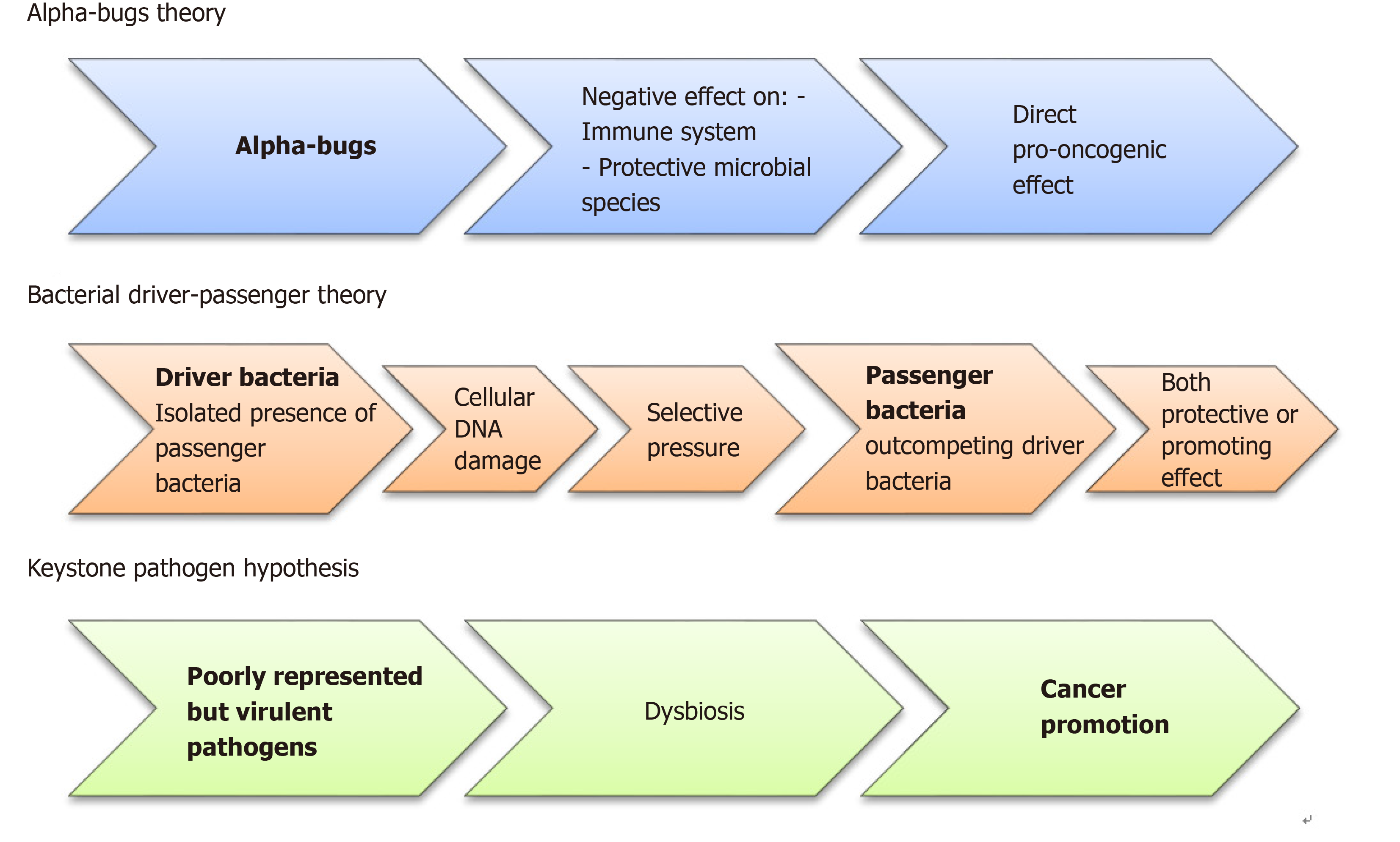Copyright
©The Author(s) 2020.
World J Gastroenterol. May 28, 2020; 26(20): 2498-2513
Published online May 28, 2020. doi: 10.3748/wjg.v26.i20.2498
Published online May 28, 2020. doi: 10.3748/wjg.v26.i20.2498
Figure 2 Diagram showing the three pathogenetic models involved in colorectal cancer initiation and promotion.
Currently, to explain the colorectal cancer development, three different pathogenetic models have been suggested. According to the “alfa-bugs” model, some species (e.g., Bacteroides fragilis) may have direct pro-oncogenic effect acting against both immune system and protective microbial species[22]. The “bacterial driver-passenger” model suggests that some “driver bacteria” promote cancer development through DNA damage. Subsequently, the “passenger bacteria” replace them having protective or cancer-promoting activities. The results of this new balance will determine tumor progression or tissue healing[23]. Finally, in the “keystone pathogen” model, some poorly represented pathogens have the unbalanced ability to alter the equilibrium within the normal microbiota causing a dysbiosis[25].
- Citation: Bartolini I, Risaliti M, Ringressi MN, Melli F, Nannini G, Amedei A, Muiesan P, Taddei A. Role of gut microbiota-immunity axis in patients undergoing surgery for colorectal cancer: Focus on short and long-term outcomes. World J Gastroenterol 2020; 26(20): 2498-2513
- URL: https://www.wjgnet.com/1007-9327/full/v26/i20/2498.htm
- DOI: https://dx.doi.org/10.3748/wjg.v26.i20.2498









